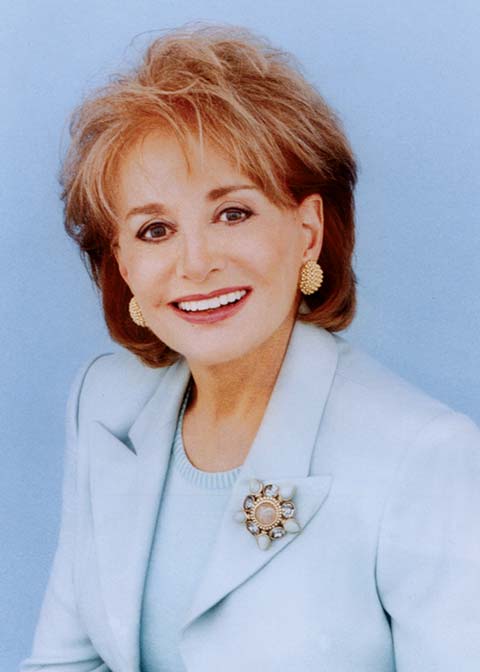Barbara Walters was born on September 25, 1929, the youngest of three children. Her older brother, Burton, died of pneumonia before she was born. Her sister, Jackie born three years before Barbara, was mentally challenged. In her memoir, Audition, she candidly speaks of the enormous role her sister’s condition and limited life played in influencing and molding her into the person she would become.

Barbara’s relationship with her sister was complicated and difficult. In large part, she became her sister’s caretaker early on, including Jackie in many of her own activities and foregoing many things that might otherwise have been a part of her life were it not for the fact that Jackie wouldn’t be able to do those things. Barbara was embarrassed by her sister and felt guilty that she would be able to fully experience life while Jackie would never have this experience. And she understood early on that ultimately, one day, she would be the one responsible for Jackie. Thus the ambition; the need to achieve.
Sometimes things come our way and we know they are meant to help us. For Barbara, finding the book The Normal One: Life with a Difficult or Damaged Sibling by Jeanne Safer explained so much about her own life. Within its pages she recognized much of her own experience—“the prematurely mature child; the looming responsibility for a sibling’s care and well-being; the compulsion to be an over-achiever; the fear of failure.” 17
This need to achieve, however, was way beyond sheer ambition and the recognition that she would be the one responsible for her sister’s future. It was rooted in the practical role of a highly capable daughter who saw the writing on the wall as life unfolded. Her father was a famous show business entrepreneur. Barbara and her family lived in the lap of luxury—until her father lost it all. Barbara knew it was up to her to support her family.
There’s no doubt that the events of her life set the stage for Barbara’s future, or at least influenced what she was to become. She did achieve, well beyond what even she might have imagined—as a journalist, broadcasting personality, author, and pioneer for professional women in a man’s world. Perhaps the events of her life sharpened her skills as an interviewer extraordinaire of so many notables from so many walks of life. Her ability to capture the essence of a personality in her interviews is uncanny.
The picture she paints in her memoir has many of the elements descriptive of a replacement child; carrying her parents’ grief of a lost son and a challenged daughter, the burden to succeed was placed upon her shoulders early on. Barbara was not free to live her life on her own terms; there were many limitations and responsibilities superimposed on her own life.
Her personal life was complicated as well with several marriages and relationships. After three devastating miscarriages, Barbara and her husband adopted a daughter. They named her Jackie for Barbara’s sister. In her memoir, Jackie’s troubled years growing up are revealed. Perhaps, Jackie carries some of the legacy of the second generation replacement child.
Barbara’s achievements and accomplishments are legendary. What often goes hand in hand with the role of a replacement child is perfectionism, the need to be the best, perhaps in part to make up for parental grief over the loss of a child. Barbara had to assume adult responsibility for her sister as a young person. Although this was imposed upon her by her mother, it’s very likely that she took this upon herself as well, as a way to make up for her own survivor guilt: Why am I healthy and thriving, given so much, while my sister suffers and is challenged every day of her life?
This month’s profile is excerpted with permission from Replacement Children: The Unconscious Script, by Rita Battat and Dr. Abigail Brenner.